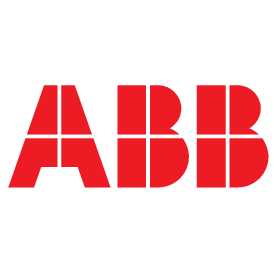ABB is a leading technology company in power and automation that helps utility, industry, transport and infrastructure customers improve performance while lightening their carbon footprint. Marcus Högblom, vice-president of sales and marketing, discusses new products, market trends and fuel efficiency.
How has the Azipod XL been improved from the previous generation?
Marcus Högblom: The Azipod XL is a new addition to the proven and reliable Azipod X series. The main benefit of the LFP Azipod is improved hydrodynamic efficiency, which comes from a special nozzle module with stator blades. This installation causes the Azipod propulsion unit to straighten the water flow from the propeller to reduce turbulence and energy loss, and give the optimum thrust to the vessel.
The LFP Azipod also gives greater bollard pull compared with existing propulsion unit designs, which are normally optimised for high sailing speeds. The concept therefore perfectly suits vessels that need high bollard-pull performance and transit operation at higher speeds.
How does the new Dynamic AC (DAC) system aid fuel efficiency?
The DAC concept optimises the total fuel consumption in the vessel by adjusting the rotational speed of the diesel-generating sets, allowing the system frequency to vary within the specified range. It can provide up to 6% annual fuel savings with diesel electric propulsion when the operational profile of the vessel has a lot of variation in speed and power demand.
With DAC, the electrical system is similar to a conventional AC system, but designed to operate at variable frequency. The main engine speed can be adjusted and the electrical system operates at a frequency proportional to the engine speed.
How much fuel can be saved using the Azipod XL and DAC systems?
Based on extensive CFD calculations and model tests, the improvement is about 5-10% compared with the existing Azipod XO design and up to 20% with conventional shaft-line concepts. An important additional feature is the improvement of efficiency over the whole ship speed range rather than only at one design point. This improved hydrodynamic efficiency makes the Azipod propulsion concept feasible to many types of high-power open-water vessels. With the DAC electric power plant concept, remarkable fuel savings can be achieved depending on the vessel’s operational profile.
Saving fuel means reducing costs and lightening carbon footprints. Why has ABB focused so intently on these two goals?
Energy efficiency is recognised as a global mandate by governments, maritime organisations and businesses, and it is also one our key drivers at ABB, together with safety, manoeuvrability and passenger comfort. Operating costs and stricter environmental regulations are driving shipowners and designers to find more effective ways of designing and operating ships in an energy-efficient manner, and we want to support them in the process.
How is the Chinese market impacting the industry globally?
China has become a major player in shipbuilding in the past 15 years, with the country – and the continent – becoming increasingly popular as a cruise destination. As a result, cruise vessels will be built in China in the future. Building complex vessels requires a wide subsupplier network, which has not been established in China yet and takes time to build. This gives an opportunity for European suppliers to enter the Chinese market. In the long term, cruise vessels will be built in China and Europe.
What innovation and activity can we expect to see from ABB in the future?
We are noticing increased interest in the polar region from the passenger sector. Due to our expertise in the cruise and ice-going sectors, we are ideally positioned to support our customers with such projects. We are also seeing the industry move from being one of the most conservative to finding innovative and creative ways of operating. We have accelerated our digitalisation strategy by improving our competencies in new areas and integrating them with the existing organisation. Our new integrated operations centres are proof of that.
We consider this the beginning of the next industrial revolution; there will be a wave of shipbuilding activity that will see more connected, integrated, electrical and autonomous vessels and maritime operations. We believe the next step in this rapid change in shipping productivity and safety comes from better integrating ships with shoreside operations. Integrated operations will drive this change in the coming years.


